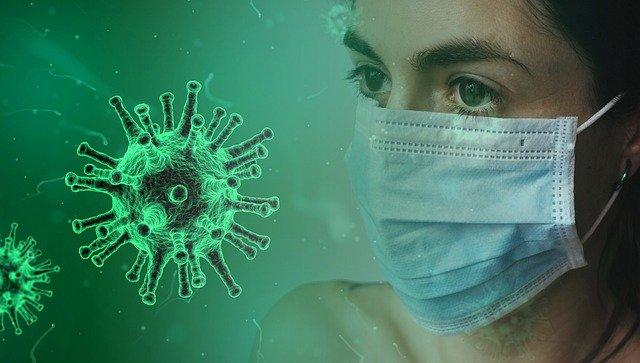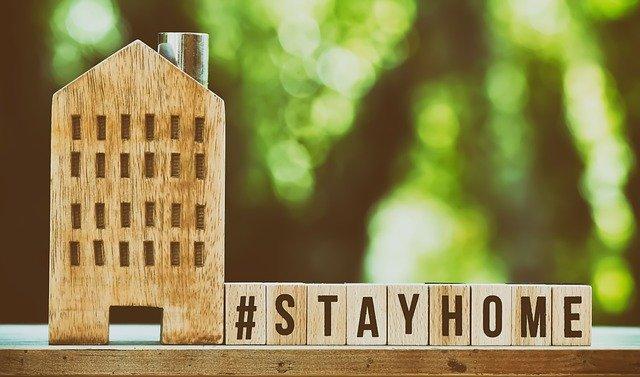
Contents [show]
We all are facing the impact of the new coronavirus disease, COVID-19. It is spreading more and more around the world. And as we are learning more about this disease, experts are constantly coming up with new updates about it. While everyone is at some risk of catching the COVID-19, there are a few underlying health conditions that can make you fall under the “High-Risk” category. High-Risk means that you become more prone to catch the infection of the COVID-19. We all must do our best to prevent the spread by following certain guidelines provided by the experts, such as, maintaining social distancing, proper hand hygiene, eating healthy foods, staying indoors, and going out only if it’s necessary. This is especially important for you if you are at a higher risk of catching this disease. Healthzigzag recommends you to read first, What Is Coronavirus? Symptoms, Treatment, And Prevention.
You may have a few questions about a particular condition you have, and how it can impact your risk of catching the coronavirus. You can clear your doubts by consulting a doctor at a medical clinic in Santa Ana, CA. A doctor can provide good individual advice and clear all your doubts and confusions about your condition and the COVID-19. Also, here are some general guidelines that will help you in understanding what you can do to avoid contracting the coronavirus. But first, let’s get some information about the conditions that put you in the “high risk” group so that you can shield yourself from the protection.
Read Also
- What are the factors that can delay the spread of COVID-19?
- Recommendations to avoid infection by the coronavirus
- Bats: the cause of the coronavirus
Conditions That Make You Fall Under The Category of “High Risk”
Anyone can indeed catch the COVID-19, but your age is a big factor when it comes to the severity of the infection. Older people with underlying health issues such as chronic bronchitis, heart failure, diabetes, or emphysema are more prone to catching COVID-19.
Other than this, there are more underlying health conditions that can increase the risk of contracting the COVID-19 regardless of your age. These are:
- Chronic kidney disease.
- A blood disorder. For example, sickle cell disease.
- Chronic liver disease, such as cirrhosis and chronic hepatitis.
- Conditions or treatments that can weaken your immune system. These include cancer, treatment of cancer, immunosuppressant medications, HIV or AIDS, organ or bone marrow transplant.
- Lung disease, such as coronary artery disease, heart failure, and congenital heart disease.
- Current or recent pregnancy.
- Mitochondrial disorders and inherited metabolic disorders.
- Neurological and neurologic and neurodevelopment conditions. These include stroke, epilepsy or seizure disorders, cerebral palsy, moderate to severe developmental delay, spinal cord injury, intellectual disability, and muscular dystrophy.
- Lung disease, such as asthma and COPD (chronic bronchitis or emphysema).
These are the conditions that can put you at a high risk of contracting the COVID-19. Now, let’s look at the precaution you should take if you have some of these risk factors.
Stay At Home

Everyone has been asked to stay indoors and do not go out unless it is very necessary. Whether a person is at high risk or not, every individual needs to stay indoors and maintain social distancing. This is especially important for people at higher risk.
The Centers for Disease Control and Prevention (CDC) has recommended people at higher risk to avoid traveling for some time and stay away from the crowd as much as possible. You have to take care of this especially in a space with poor ventilation and with little air circulation. This is important because the virus can easily spread in spaces with little air circulation and poor ventilation. You should avoid going out at all costs, even if you need to buy groceries. It is better for you to just order the items that you need. And if that is not possible, ask a friend or family member to help you get the necessary stuff.
But, sometimes it becomes compulsory for a person to go out to buy some necessary items. In this case, you must follow the guidelines issued by the CDC; avoid getting in contact with any “high touch” surfaces. These include elevator buttons, handrails, and door handles. Don’t touch such surfaces directly with your hands, use a tissue or your sleeve instead. And remember to wash your hands as soon as possible.
Try to Limit Your Visitors

These are rough times, and we must all do our part to prevent the spread of this virus. So, try to try to say no to people, other than those who live with you, who want to visit your house. Whether they are showing any symptoms of the COVID-19 or not, you should not entertain them as they can unknowingly spread the virus.
If a person seems sick or has been exposed to the coronavirus, you must not allow him or her to meet you. And even if you have some guests, make sure that the first thing they do after walking in your house is that they wash their hands well. This is very important as they are coming from outside and you do not know what surfaces they have touched. Also, try to maintain a distance of a minimum of 6 feet from them, if possible.
I know that it is challenging to stick close to your home, not meeting friends and limiting your guests, that too for a long period. But, there are a few alternate ways to stay connected with them during this coronavirus pandemic. The best option we all have is the internet or social media in particular. You can stay connected to your friends through various social media platforms, such as Facebook, Instagram, or WhatsApp. Or you can FaceTime or Skype with your friends and family who do not live with you.
While you are staying in your home, you can join an online class to keep yourself occupied. And if you are working from home, keep taking small breaks in between to stretch your body. Take a small walk in your house, or walk in your garden (if you have one).
Keep Your Hand Hygiene Game at Top
It is next to impossible to disinfect everything, even if you do your best to clean things. And if you touch any of the infected surfaces, the virus will be on your hands. And the virus will enter your body if you touch your eyes, nose, or mouth even just once. The best way to prevent this from happening is to clean your hands well.
Washing your hands with soap and water for 20 seconds is considered the ideal way. But you can also use a hand sanitizer if the soap is not available. You need to ensure that the hand sanitizer you are using contains at least 60 percent alcohol.
You must wash your hands regularly, especially before eating food, after using the bathroom, sneezing, coughing, blowing your nose, after touching your pet, after touching the garbage bin. And if you need to go out, wash your hands as soon as you return home.
Read Also
- How to put on and take off gloves to avoid contagion by the coronavirus
- Coronavirus in children: everything you need to know
- Can coronavirus affect men more than women?
Take Care of Your Chronic Condition
Many people suffer from chronic conditions like high blood pressure or type 2 diabetes. If you are also one of them, follow the advice given by your doctor to take care of yourself. If you have heart issues, you must limit or avoid taking over-the-counter decongestants. This is especially important if you suffer from uncontrolled high blood pressure. Pain relievers like ibuprofen and naproxen can increase your blood pressure levels, so avoid them.
If you have any concerns about how to handle your chronic condition or what medication to take, it is better to consult your doctor.
Skip Healthcare Visit if it is Nonessential at The Moment
These are not normal days, and hence you must avoid visiting your doctor unless it is very necessary. Try to look for some alternate ways to get that care. If you have a routine appointment, then either cancel it or conduct it via telephone or video call. This way you would not have to go out to the clinic to see the doctor.
Physicians and other health professionals are now allowed to bill Medicare to cover telemedicine visits for older patients.
Plan Ahead in Case You Fall Sick
You must maintain a list of some up-to-date emergency contact numbers for your family, friends, healthcare providers, and even your neighbors. Those people who can reach out to you if in case you or anyone else in your family falls sick.
And if you live alone, it is better to have some people who can call or text you daily to check in on you. In addition to this, you should get your prescribed medications for at least 30 days. You should also ensure that you have common drugstore items that you may need if you get sick. These include pain relievers such as acetaminophen and a thermometer. When it comes to other supplies, such as toilet paper, you don’t have to buy out the entire aisle. Just get enough household supplies and groceries that will get you through some days. This is very helpful for you if you do not have anyone who can go out and buy supplies for you.
If you feel that you have developed certain symptoms of the COVID-19, like a fever, a cough, or shortness of breath, you should immediately call your doctor. Avoid simply showing up; you must always call your doctor first as he might have a specific protocol for these situations. And you can also call the local emergency number if you feel it is an emergency.
Conclusion
There are a lot of things that we don’t know about the coronavirus. But there are certain things that we are familiar with; people who are sick, old, suffer from certain health conditions, or have weak immune systems are particularly at higher risk. So, if you fall under this category of “high risk,” follow these guidelines to keep yourself safe. And while you are following these guidelines, you must consult your doctor to get more advice.
You May Like Also




